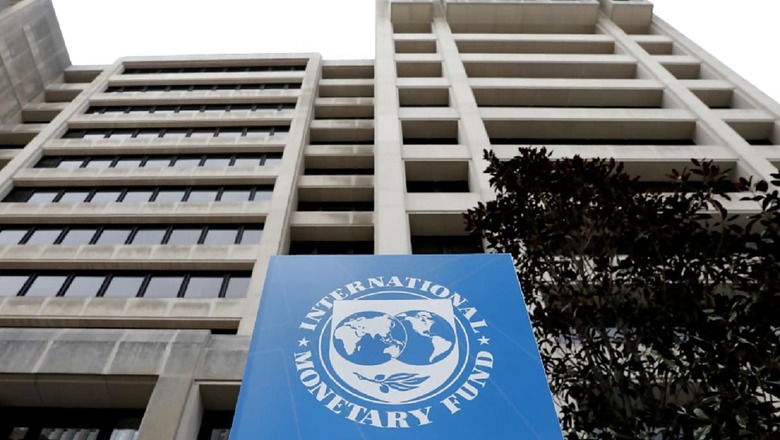
views
The IMF on Thursday said that there is a need for another stimulus, especially expenditures on health, food and income support for vulnerable households, and support for businesses in view of the COVID-19 pandemic. Gerry Rice, Director of Communications Department at the International Monetary Fund (IMF), told reporters at a virtual news conference here that the Washington-based global financial institution supports the Indian government's responses to the pandemic including fiscal stimulus with a focus on low income workers and households.
We support the monetary easing and liquidity and regulatory measures for the financial sector and borrowers that have taken place. We believe further fiscal stimulus is warranted, especially expenditures on health, food and income support for vulnerable households, and support for businesses, Rice said, responding to questions on the massive contraction that the Indian economy has experienced in the latest quarter due to the coronavirus pandemic.
In the short term, a detailed well communicated and credible medium-term fiscal consolidation plan is also important, alongside an increase in fiscal transparency, the IMF spokesperson said. We hope that would help boost market confidence, thereby helping to reduce the cost of borrowing, as well as help the economy overall, he said.
Noting that the impact of the coronavirus pandemic is significant in India on development, and on poverty, Rice said that given the unprecedented shock, the immediate priority needs to be a coordinated policy response to fight the virus. After the US, India has the second largest number of people who have been infected by coronavirus with more than 4.2 million positive cases. The US has the largest number with 6.4 million cases and 193,250 deaths.
Over 70,000 Indians have died due to coronavirus, as it has had an unprecedented impact on the India economy. The preliminary GDP estimate for 2020, second quarter performance in India, came in weaker than expected, around 23 per cent as year on year, reflecting on the severe impact of the pandemic, and the ensuing lockdowns.
The contraction and economic activity reflected broad base weaknesses in industries and services with construction, manufacturing, hotels and transportation sectors, suffering the most, Rice said. In its last World Economic Outlook Update, the IMF projected India's growth at minus 4.5 per cent and six per cent for fiscal years 2020-21 and 2021-22 respectively, he said.
The near-term growth outlook continues to be clouded by the global and domestic slowdown and uncertainties from the pandemic with significant downside risks. Of course, this is true, not just for India but for most countries, he said, adding that the IMF would be revising India's growth projections during the next World Economic Outlook release on the sidelines of the annual meeting of the IMF in October.




















Comments
0 comment